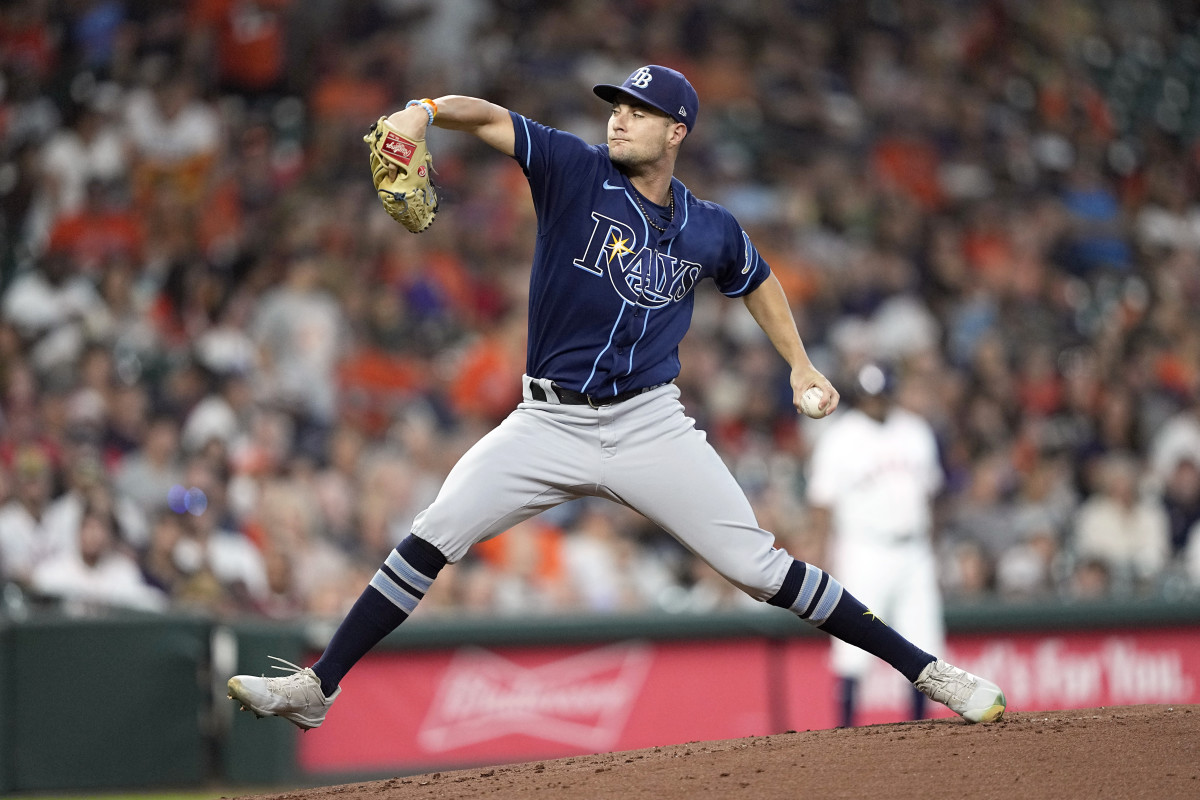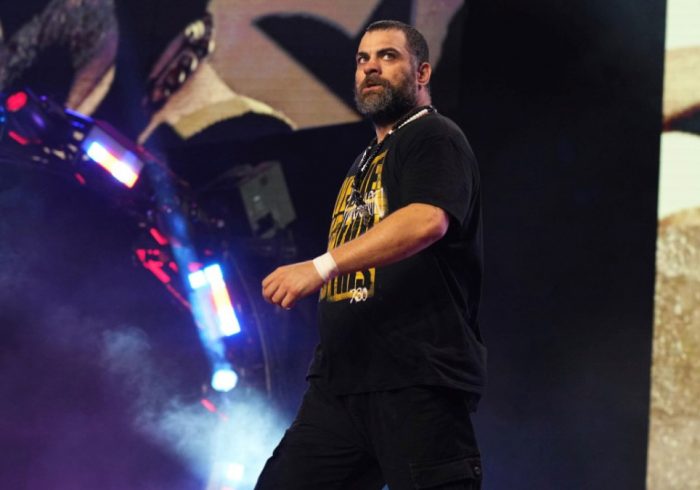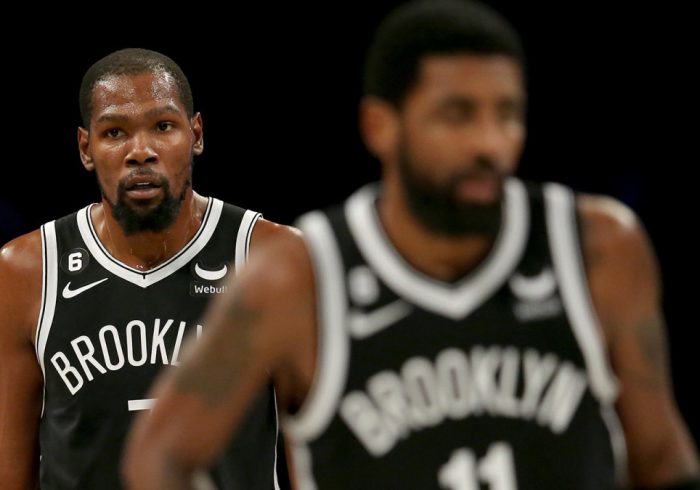When the Guardians and Rays match up for the first game of the postseason in Cleveland on Friday shortly after noon ET (a wickedly early first pitch time for a playoff game), those of us tuning in will see two teams with a lot in common.
Of the 12 teams in the playoff bracket, they’re the two with the fewest home runs. They own the lowest ERAs among the eight teams in the wild-card round. Cleveland manager Terry Francona is MLB’s longest-tenured manager by his current team, and Tampa Bay manager Kevin Cash is right behind him in second place—and before Cash was hired by the Rays, he worked as Francona’s bullpen coach in Cleveland.
The Guardians (92–70) secured the No. 3 seed on the American League side of the bracket by winning the AL Central, while the Rays (86–76), losers of five straight to end the season, finished three games ahead of the Orioles to earn the sixth seed and final playoff berth.
Despite the six-game difference in their final records, the two clubs also appear to be evenly matched—they met at Progressive Field just last week and the Guardians won two of three contests, all of which were decided by one run, including an Amed Rosario walk-off.
In some ways, though, they are quite different. Cleveland’s 23 wins since the beginning of September are the most of any team. Tampa Bay’s 14 wins (against 18 losses) over the same span are tied for the fewest among playoff teams. And while Cleveland has embraced an old-school, small-ball style of play, the Rays have long had a reputation for being one of the most analytically inclined, three-true-outcome teams, even if it hasn’t exactly played out that way on the field this year.
Let’s try and suss out some of the other key differences that’ll emerge over the course of this three-game series. Here are three factors that will help determine which team advances to face the Yankees in next week’s ALDS.
Which Shane McClanahan will show up?
McClanahan put up impressive numbers this season (2.54 ERA and 4.0 WAR), but most of his production came in his 18 starts before the All-Star Game.
AP Photo/David J. Phillip
Tampa Bay’s ace was the AL Cy Young frontrunner at the end of the first half, when he recorded a 1.71 ERA with 147 strikeouts in 110⅔ innings, and he was rewarded with the starting nod for the All-Star Game. But ever since the 25-year-old allowed a couple of runs in his lone inning of work at Dodger Stadium—accounting for the only runs given up by the AL in their 3–2 win over the NL—he hasn’t been the same guy.
In fact, McClanahan has been a worse than league-average starter, posting a 4.20 ERA in 55⅔ innings since the break. The lefthander issued the same amount of walks (19) in the second half as he did in almost exactly twice as many innings in the first half, while his strikeout rate shrunk from 35.7% to 20.5%. McClanahan had allowed zero or one run in 11 of 12 starts heading into the All-Star break. He’s done so in just two of 10 second-half starts. He’s also yet to pitch into the sixth inning in four starts since a stint on the injured list for a shoulder impingement, and has struck out just 12 hitters in those four outings after doubling that total in his previous four starts.
Coincidentally, Cleveland was the team that seemingly sent McClanahan down that rocky road. The Guardians faced him once this season, on July 31, less than two weeks after the All-Star Game. In his first second-half start, the southpaw limited the Orioles to two runs over seven innings. But then the Guardians came in and lit him up for five runs, tied for the most he’s given up this season, on seven hits and three walks against just four strikeouts in 4⅓ innings. The result was McClanahan’s worst game score (30) of the season. If something similar plays out in Game 1, Tampa Bay will be up against it from the get-go.
Then again, maybe McClanahan’s bad day vs. the Guardians was a fluke, because …
Can the Rays capitalize on Cleveland’s issues against lefties?
… Cleveland usually can’t hit lefties worth a lick. When facing them, the Guardians have logged a 85 wRC+, which means they’re 15% worse than the average team. That mark ranks 27th in MLB and makes them the only playoff team that is below-average against lefties. No club hit fewer home runs against lefthanders this season than Cleveland (26).
Three of the Guardians’ top five batters by wRC+ (Andrés Giménez, Steven Kwan, Josh Naylor) are left-handed, and another is switch-hitter José Ramírez, whose OPS against lefties this season was nearly 200 points lower that it was vs. righties (.918 to .729). The one leftover is rookie right-handed outfielder Óscar González, who has slight reverse splits 91 games into his MLB career. So, yeah, Cleveland seems susceptible to talented lefthanders, of which the Rays have plenty. In addition to McClanahan, Tampa’s staff also features Jeffrey Springs (whose 2.46 ERA leads Rays starters) and relievers Brooks Raley, Jalen Beeks and Garrett Cleavinger (all of whom average at least 10 strikeouts per nine innings). It’s worth noting that Beeks missed the final two and a half weeks of the regular season with right lower-leg tightness, but he is expected to be active for the Wild Card Series.
Tampa Bay is known for hunting its opponents’ statistical weaknesses, and this is a fairly obvious one. So expect to see a lot of those five guys this weekend. It wouldn’t shock me to see Springs start Game 2 over former Cleveland ace Corey Kluber or Drew Rasmussen—or for Cash to start one of those two as an opener, only to put in Springs as a bulk man once the Guardians deploy a lefty-heavy lineup.
Whose “power bats” will get hot?
Rookie outfielder Steven Kwan is one of Cleveland’s best hitters. He also epitomizes the team’s small-ball style of play.
Raymond Carlin III/USA TODAY Sports
In Tom Verducci’s spectacular examination of the Guardians’ extreme small-ball inclinations, he pointed out how critical it’s been in recent years for teams to hit home runs in the playoffs. That will be especially true in this series, as neither team is very good at doing so. If one power hitter gets hot in Cleveland, it will likely turn the tide, because there aren’t too many of them populating these lineups.
There are 23 MLB hitters who bashed at least 30 homers this year, and none of them are playing in this series. Every other playoff team boasts at least one. Guardians star José Ramírez leads all hitters in this series with 29 round-trippers. Cleveland’s Naylor is next with 20. Tampa Bay’s co-leaders, Randy Arozarena and Isaac Paredes, also have 20.
The Rays and Guardians are two of the only three teams in the postseason (the Padres being the other) that averaged less than a home run per game. Cleveland ranked 29th, above only the inept Tigers, with 127 round-trippers, while Tampa Bay ranked 25th with 137. The Rays rank last among playoff teams in slugging percentage (.377, 25th in MLB), while the Guardians are second-to-last (.382, 22nd).
Is there something in the water in these two cities? Left-handed outfielder David Peralta, acquired from the Diamondbacks at the trade deadline, has seen his power completely vanish in Tampa Bay. The 35-year-old is yet to homer in 47 games as a Ray after collecting 12 home runs in 87 games with Arizona before he swapped jerseys. Guardians catcher Austin Hedges is a career .189 hitter whose only real benefit at the dish is that he could provide some relative power for a defensive whiz. He had cleared double-digit homer totals in each of his last four full seasons, but had only seven this year.
On the pitching side, the two teams have given up home runs at almost exactly the same rate (Rays: 1.07 HR/9; Guardians: 1.06 HR/9), which puts them right around the middle of the pack. It feels like a situation ripe for a player to catch fire and carry his team to the ALDS. But neither club has a player with multiple homers over the last week, so your guess is as good as mine as to who that could be.
More MLB coverage:
• World Series Predictions: Expert Picks Entering the Playoffs
• The MLB Culture Wars That Led to Joe Maddon’s Firing
• Inside Aaron Judge’s Pursuit of Home Run History
• The Guardians Are MLB’s Most Interesting Playoff Team
• ‘Let’s F—ing Party’: The Mariners Finally End Their 21-Year Playoff Drought



